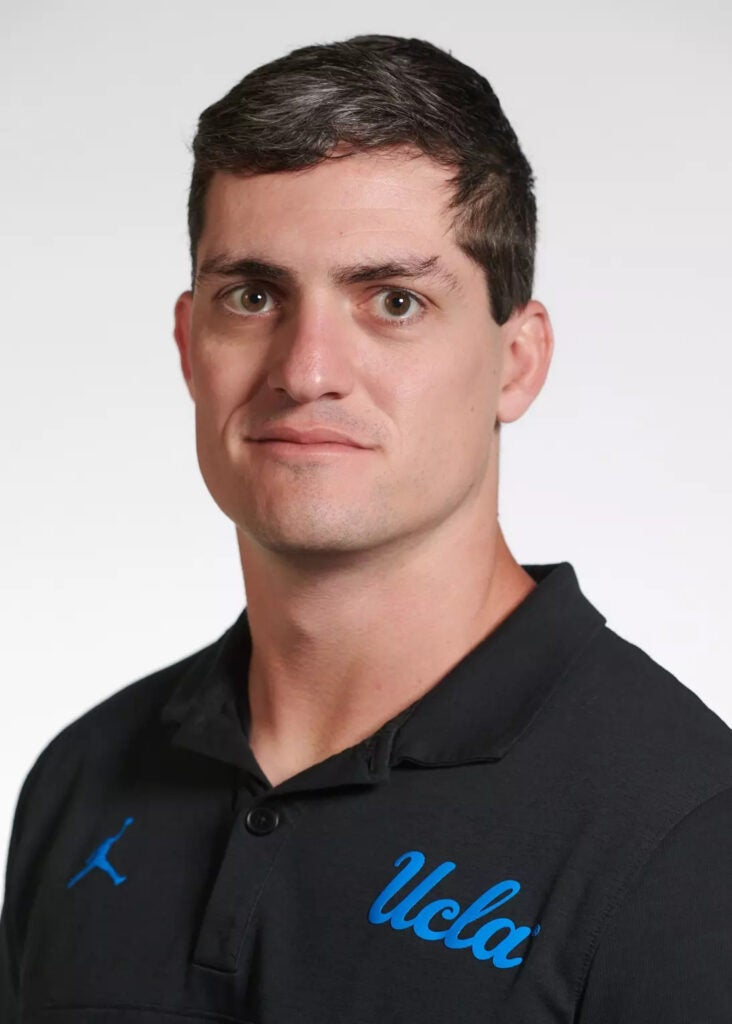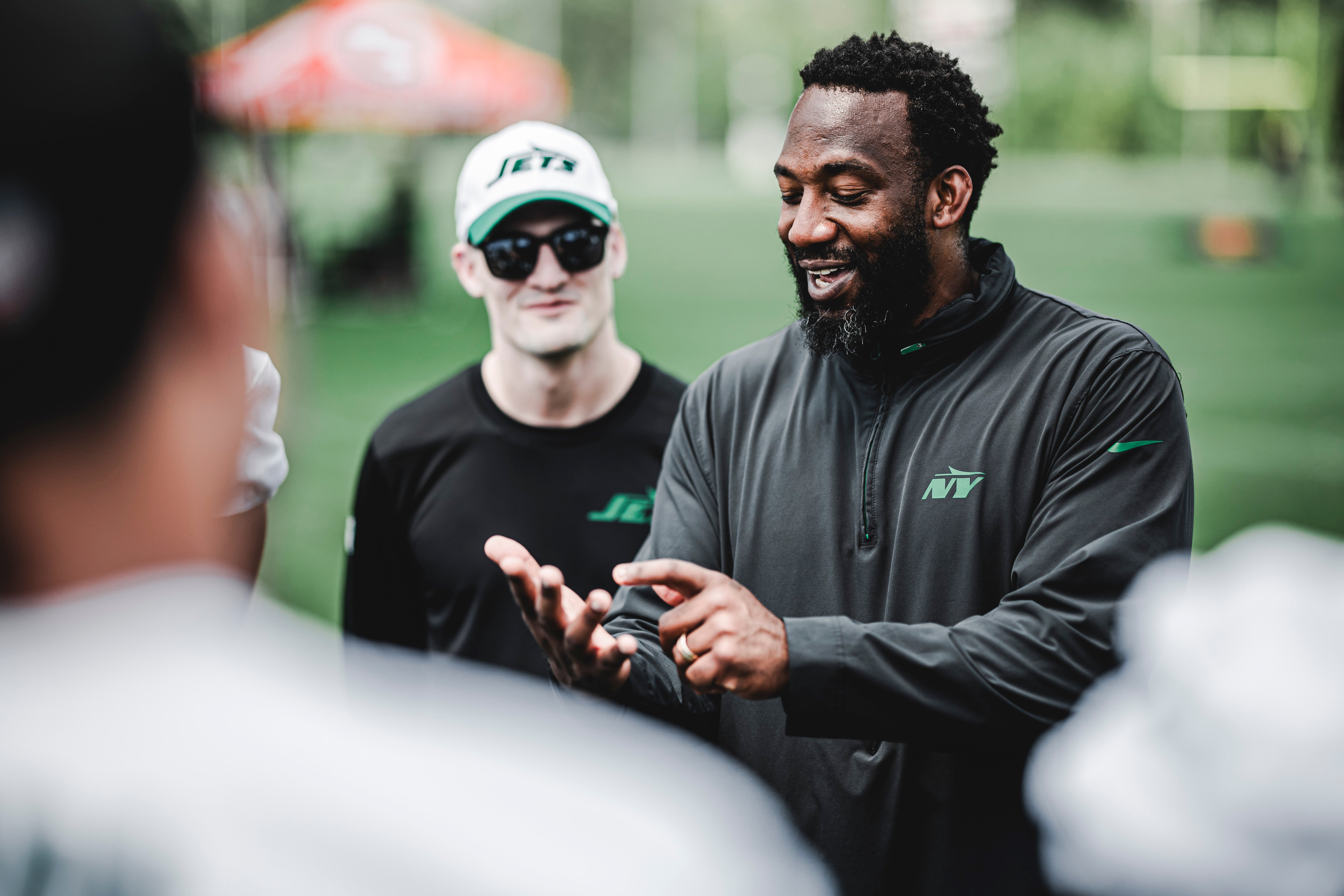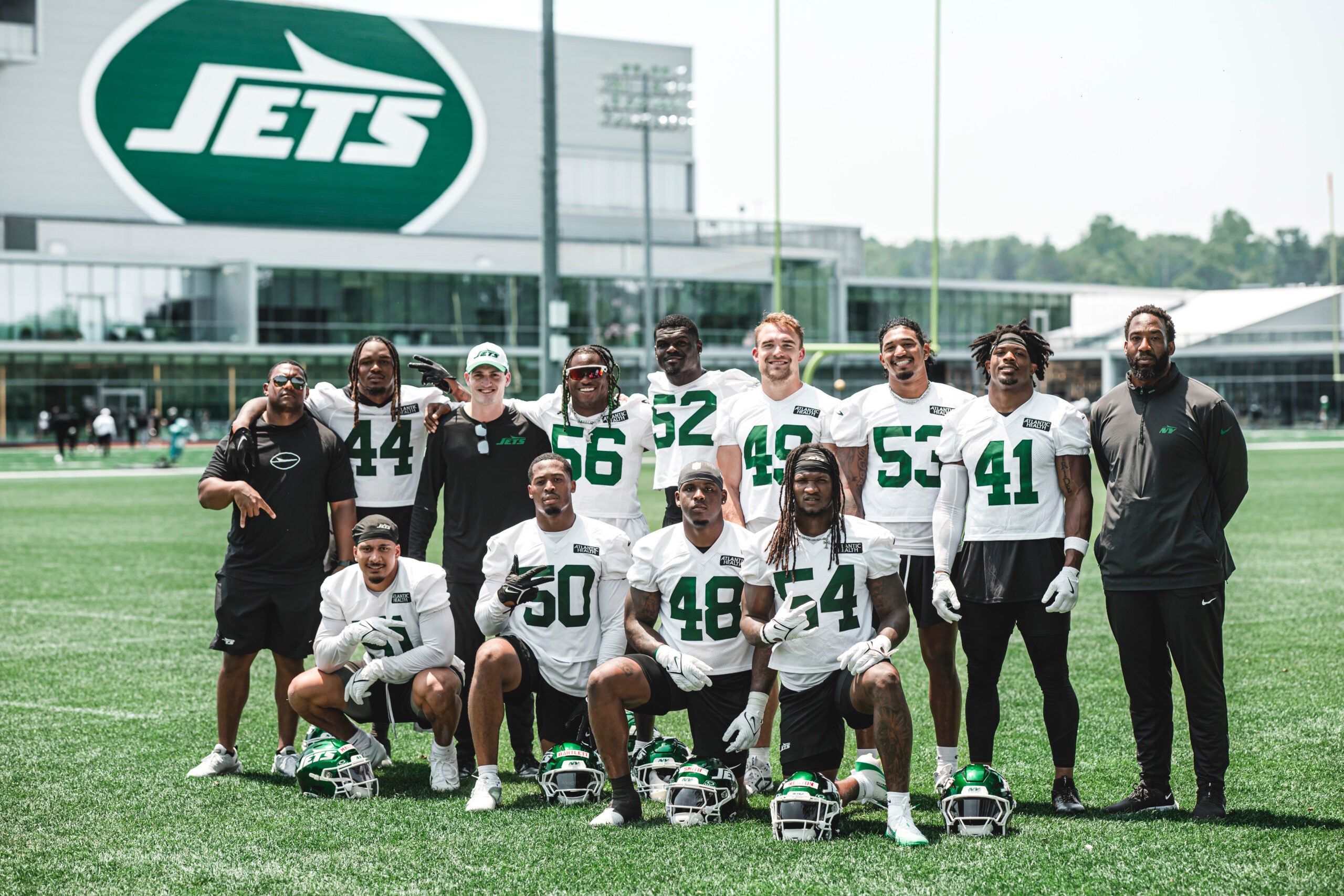A Naval Academy graduate and Marine Corps veteran, Anthony Goliver knows a thing or two about commitment and leadership.
The Ohio native was recently promoted to a special teams coaching role with the UCLA Football program, following three years as a graduate assistant.
During his time in the military, he served as an Infantry Officer and deployed to the Middle East in 2018 on the 26th Marine Expeditionary Unit (MEU) – a forward-deployed, sea-based unit equipped to handle a variety of missions, from crisis response to humanitarian assistance. He also served as an operations officer — a role in which he was responsible for the deployment readiness of nearly 2,200 personnel and the special skills development of more than 1,000 additional soldiers across the Pacific region.
“Military leadership is a lot more human-focused than people tend to think,” says Goliver, a 2024 Transformative Coaching and Leadership (TCL) program graduate who transitioned to coaching after returning from overseas. “At the end of the day, whether you’re leading athletes or Marines, you have to be values-centered and you have to be genuine.”
Working closely with the Soldiers to Sidelines program — a nonprofit organization that certifies veterans as character-based coaches — Goliver secured an internship with the New York Jets this past offseason. He’s also played a key role in UCLA’s recent recruiting success, helping the Bruins climb from No. 33 to No. 9 in the 247Sports national recruiting rankings.
We caught up with Goliver earlier this summer to hear about his coaching journey, his NFL internship, and what excites him most about UCLA’s upcoming season.

What was your experience like working with the New York Jets under newly hired head coach Aaron Glenn?
I got there right at the end of rookie minicamp, going into OTAs, and it was amazing how coach Glenn had already instilled his values into the team. He did a phenomenal job of clearly defining his pillars. Sometimes coaches just put words on a wall and never mention them again. But he’s a very intentional leader, and that trickled down to every coach on the team.
As a coach, there was a lot to teach the players — both new and returning — from a scheme perspective. It was interesting to see NFL guys having to adjust from what they’re used to running to a whole new system. That can be tricky. In their minds, they might think, ‘Oh, that’s just like this other call,’ but they can miss the nuance. So there was actually a lot of teaching involved.
Culturally, I thought Coach Glenn and the staff did a great job getting the players to buy in. You could tell how much he and the other coaches truly cared about their players.
What are the biggest differences you notice between working with college athletes and professionals?
You might think that, as a coach, you don’t have to teach pros many fundamentals — but that’s not necessarily true. You’re still reminding linebackers to keep their shoulders square. And you’re still coaching footwork, timing, and angles.
Of course, the average pro athlete is generally more athletic than the average college player, but they still want coaching. They don’t care who you are. If you have something they think can help them improve, they want that feedback.
At that level, the margins are razor thin. Nobody wants to just be ‘fine.’ They know that being ‘fine’ gets you beat — especially when the guy lined up across from you on gameday is also a professional athlete.

Prior to your current role, you spent three years as a graduate assistant. What has your coaching journey been like?
As a GA, I bounced around to just about every room on defense in those three years — which has its benefits; I can now say I’ve coached all 11 defensive positions. This new role, as a special teams analyst, has been great because it allows me to combine those skill sets into one unit that impacts the whole team. It is also another opportunity to continue to expand my knowledge of the game.
Special teams is unique. You’re coordinating with all 10 position coaches on staff, plus GAs and analysts, because you’re pulling players from both offense and defense. Communication is critical since the other coaches aren’t studying our schemes as closely as we are. We might put hours into installing a play but then only get a short practice window to execute it. So you’re not just coaching the players — you’re sometimes coaching coaches too, since special teams isn’t necessarily their area of focus.
What are you most looking forward to this upcoming season?
Part of my role involves recruiting, and this incoming class has some amazing athletes. We recently signed a specialist we’re really excited about.
Coach DeShaun Foster has also created a genuine family atmosphere and he’s put a big emphasis on keeping local talent home. A lot of SoCal kids end up playing elsewhere, but he’s working to change that. Because if we can keep one or two of those guys home, that’s two more players with deep L.A. ties — and that goes a long way in terms of team culture and future recruiting.
At the end of the day, we want people who want to be Bruins. In the age of the transfer portal, programs are learning the hard way that if you lie to a player during recruiting, he’s gone in three months.
Fortunately for us, UCLA often sells itself. We get to show them who we are and what UCLA offers, with no sales pitch, and allow them to make an informed decision.
Goliver and his wife, Linda, recently celebrated the birth of their first child, a son named Owen, born at UCLA’s Santa Monica Medical Center. A native of Dublin, Ohio, Goliver holds a bachelor’s degree in Applied Mathematics from the United States Naval Academy and a master’s in Transformative Coaching and Leadership from UCLA. Before joining UCLA, he began his coaching career overseas while stationed in Japan. From 2019–2021, he served as associate head coach and offensive coordinator for the Camp Hansen Outlaws of the Okinawa American Football League. He also mentored student-athletes at Kadena High School in Okinawa, serving as a varsity assistant and JV defensive coordinator.
Learn more about UCLA’s Transformative Coaching and Leadership Master of Education program.
Support TCL’s mission to contribute to the creation of a more just, equitable and humane society through enlightened and socially conscious coaching and leadership.
